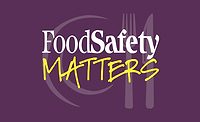Ep. 78. Jespersen, Tanner, and Coole: Sustaining Food Safety Culture

Lone Jespersen is the principal at Cultivate, an organization dedicated to helping food manufacturers globally make safe, great-tasting food through cultural effectiveness. Lone has significant experience with food manufacturing, having previously spent 11 years with Maple Leaf Foods. Following the tragic event in 2008 when Maple Leaf products claimed 23 Canadian lives, Lone led the execution of Maple Leaf's food strategy and its operations learning strategy. She holds a master's degree in mechanical engineering from Syd Dansk University (Denmark), and an M.Sc. and Ph.D. in food science from the University of Guelph (Canada).
Marie Tanner joined the Dairy Farmers of America in 2017. She is currently the senior vice president of food safety and quality. Prior to that, Marie was the global chief food safety and quality, health, safety, and environment management at Kerry. Before Kerry, Marie held various quality leadership roles at PepsiCo and Godiva (Ulker). Marie holds an M.Sc. in food science from Rutgers University. She formally served on the board of SSAFE, a global nonprofit working to integrate food safety, animal health, and plant health across food supply chains.
Neil Coole is the director of food and retail supply chain at BSI Americas. In 2015, Neil joined BRC Global Standards to head up their global key account strategy, engaging key industry brand owners, manufacturers, and retailers to understand their requirements from a risk solutions perspective. He was the subject matter expert on BRC Global Standards' new strategy on food safety and quality culture excellence, working with manufacturers on how to embed a culture of food safety and training food manufacturers, brand owners, and suppliers on the important topic of food safety and quality culture excellence.
Subscribe on Apple Podcasts | Stitcher | Google Play | Android
For access to more podcast episodes, click here.
In this episode of Food Safety Matters, we speak to the panel [11:46] about:
- Organizational culture and how it influences food safety
- How a company's culture is created from the top down
- How food safety culture can and should give an organization a competitive edge
- COVID's impact on food safety culture
- Why the idea of "implementing" a food safety culture is problematic
- Some wrong ways to go about creating change within an organization's culture
- Diversity and inclusion, and how they play a role in changing a company's culture
- How to begin undoing a history of complacency within a company's current culture
- Tips for improving and sustaining a positive culture
Food Safety Culture Articles
Supply Chain and Food Safety Culture - Feb/March 2017
The Supply Chain and Food Safety Culture: Primary Production - April/May 2017
The Supply Chain and Food Safety Culture: Distribution - June/July 2017
The Supply Chain and Food Safety Culture: Processing - Aug/Sep 2017
The Supply Chain and Food Safety Culture: Foodservice - Oct/Nov 2017
The Supply Chain and Food Safety Culture: Retail - Dec/Jan 2018
Supply Chain and Food Safety Culture: Sector Leaders Sharing Their Challenges and Recommended Practices - Feb/March 2018
Resources
Cultivate Maturity Model
BSI - Cultivate Food Safety Culture Postcard
BSI - COVID-19 Safe Working Guidelines
BSI - Workplace Hygiene Solutions Brochure
BSI - Workplace Hygiene Solutions Video
BSI - UK's National Standards Body - COVID-19 Response
News Mentioned in This Episode
EU's Draft Amendment of Hygiene Legislation Includes Focus on Food Safety Culture [2:07] - see official draft regulation document
FDA Announces the Voluntary Phase-Out of by Industry of Certain PFAS Used in Food Packaging [3:46] | The Growing Challenge of Safe Water Use for Food Processing Operations
UMASS Food Scientist Secures Grant to Develop New Method for Cleaning Peanut Butter Off Food Processing Equipment [7:42]
Looking for a reprint of this article?
From high-res PDFs to custom plaques, order your copy today!




